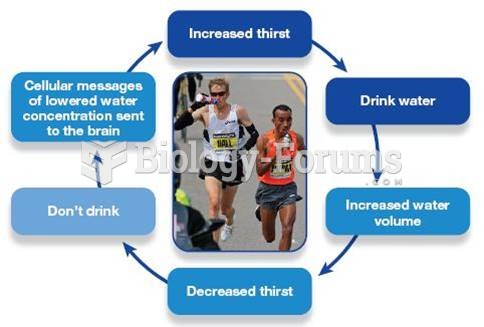|
|
|
More than 34,000 trademarked medication names and more than 10,000 generic medication names are in use in the United States.
Only one in 10 cancer deaths is caused by the primary tumor. The vast majority of cancer mortality is caused by cells breaking away from the main tumor and metastasizing to other parts of the body, such as the brain, bones, or liver.
Pubic lice (crabs) are usually spread through sexual contact. You cannot catch them by using a public toilet.
Warfarin was developed as a consequence of the study of a strange bleeding disorder that suddenly occurred in cattle on the northern prairies of the United States in the early 1900s.
Earwax has antimicrobial properties that reduce the viability of bacteria and fungus in the human ear.







